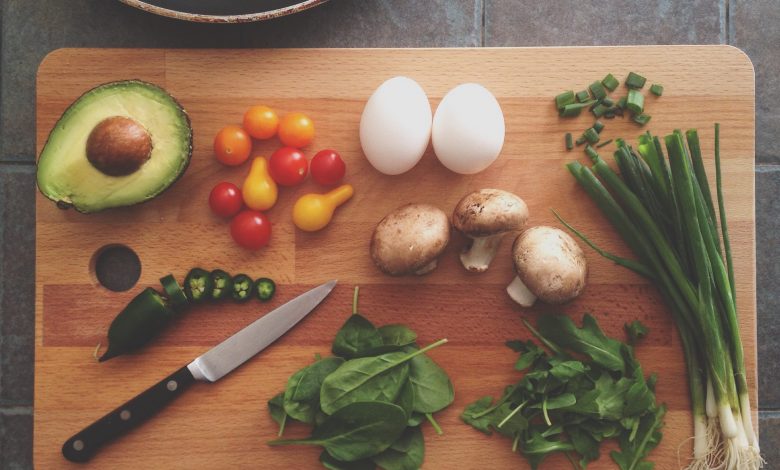
Why You Get Cravings and How to Stop Them
An estimated 70% of young men and 100% of young women had food cravings in the past year. That covers most of us, right?
So how do you beat your cravings? First, get to know your enemy. The thing about cravings is that they are not normal. This is good news because it means that, once you find out what causes these desires, you can quickly figure out a plan of action.
What are Cravings, and What Causes Them?
A food craving can be defined as an intense desire for a specific food. Now, according to experts, food cravings usually last between three to five minutes and differ from person to person. And if you’ve been told that putting “mind over matter” is the key, that person was right.
Food cravings are ultimately all in your head. Three areas of the brain are typically active when you crave food. These regions are the hippocampus, the insula, and finally, the caudate. These areas are also responsible for associating food with a reward, called the minds’ ‘reward center.’
Researchers suggest that one of the reasons why food cravings are so hard to stop is because of mental imagery. When you crave a particular food, you have vivid images of the food. This mental imagery is so powerful it can take over brain power, making it challenging to focus on anything else. Studies show that, when subjects are imagining something they are craving, they are failing at performing tasks like solving math problems or recalling words.
In other words, it is safe to conclude that cravings have little to do with biology and a lot to do with psychology. Hormones are often involved in the craving process. When you eat your favorite comfort food, your body sends out those ‘happy hormones’ that tell your brain how great that food made you feel. In time, these receptors become callous, and you need to eat more and more of that food to get the same ‘high.’ For this reason, food cravings are very similar to addictions.
Another trigger of cravings is the aroma. Since smells are closely connected to our emotions and memories, your brain perks up when it smells something it relates to happiness. This is why you can find yourself craving a burger just because you passed by a burger joint and were overwhelmed with the sweet smell.
Since the cause for many cravings is in the brain, you can easily beat it at its own game. For example, when you find yourself thinking of that ice-cold fizzy drink, focus on something else. Forcing your brain to get the image out of your mind may be all it needs to stop fantasizing and get on with the work at hand.
However, in many cases, food cravings are more complicated than that. They can be an indicator of a health condition or a national deficiency. Here are five of the most common causes of food cravings:
- Dehydration: This can be manifest as hunger.
- Nutritional deficiencies: Your body may send messages in the form of desires to get you to fulfill specific dietary needs.
- Hormonal imbalances: When men or women have fluctuation in testosterone or estrogen levels, cravings can result. This is especially true with pregnant or menopausal women.
- Emotional issues: Feelings of loneliness, stress, and other negative emotions can lead to emotional eating. In this case, the body turns to food as a substitute for entertainment.
- You don’t have a balanced diet: For example, overeating sugary food may lead to a meat craving and vice versa.

8 Tips to Help You Beat Your Food Cravings
Now that we know more than enough about our mortal enemy, here is an 8 step strategy to help beat your cravings.
1. Get Ample Sleep
You may notice that you are likely to get food cravings late at night or at times when you didn’t get enough sleep. This is because hormones that regulate appetite fluctuate throughout the day. To maintain proper levels of these hormones, you need to sleep on a schedule and for a reasonable amount of time. Sleep deprivation has been linked to hormonal fluctuations, which result in intense cravings and poor appetite.
Studies support the relationship between getting enough sleep and cravings. One study conducted in 2013 showed that lack of sleep altered the body’s hormonal balance, which in turn contributed to overeating and weight gain. When participants returned to standard sleeping patterns, their hormones normalized, and they lost weight.
Another reason why sleep is essential in combating cravings is that the more you stay awake, the higher your energy requirements become. To help your body keep active when it is supposed to be resting, your brain may cause you to eat energy-filled foods like calories.
2. Control Your Stress Levels
Isn’t it true that you crave more when you are under pressure? How many times have you found yourself munching on a bar of chocolate while you tried to beat a work deadline? Or how about the time when you were under such emotional stress, ice cream became your best friend? There is no doubt that pressure is not suitable for your diet.
According to researchers, stress and emotional eating are among the two factors that promote cravings. One study showed that women who were under pressure were more prone to give in to cravings compared to those who weren’t. Stress eating can also lead to weight gain and full hip circumference. A hormone called cortisol is active during stressful times, and this hormone can make you gain weight around the belly at high levels.
Lowering your stress levels is probably one of the best things you can do to help you curb your cravings. Take things slowly, practice meditation, and plan carefully – do anything in your power to keep your stress to a minimum.
3. Eat a Healthy Diet
Nutrient imbalances can also trigger cravings. For example, if your diet lacks B vitamins, magnesium, fat, or other nutrients, you may experience cravings. Cravings, in this case, is the body’s way of making you give it something that it lacks.
Protein is another essential nutrient that can help curb your appetite and prevent you from overeating. Other benefits of protein are that it increases your satiety, which in turn, reduces your cravings. A study conducted on overweight teenage girls showed that, by eating a protein-filled breakfast, cravings were reduced significantly.
Even overweight men can benefit from increasing their protein intake, according to another study. Obese men who increased their protein intake to 25 percent experienced lowered cravings, especially at night.
If you find yourself always hungry, a simple remedy is to increase your protein during the day. Such an increase could reduce your cravings significantly.
4. Practice Self-Control
The saying “out of sight, out of mind” rings true when it comes to cravings. Many have succeeded in resisting temptation by keeping all sugary treats out of sight. Sometimes, that is all it takes to let your craving pass. Remember, a craving usually lasts up to five minutes, so if you can busy yourself with a walk or take a shower, the craving may pass.
If it is impossible to walk away from the craving, then try chewing gum. Some studies have shown that the act of chewing gum can help curb cravings and even reduce appetite.
5. Keep Hunger at Bay
When you are hungry, you feel like you are on the verge of starving and can more than you can or should. The longer you stay hungry, the higher the chances are of giving in to cravings. Hunger is considered to be the number one reason why we have cravings.
When your body is hungry, it craves all the bad stuff – calories, sugary sweets, and carbs – because it thinks it needs to stock on energy. And when this happens, no amount of self-control will be able to overpower your hungry stomach.
There are practical steps you can take to help you avoid getting too hungry. One is to have a few snacks ready in case of emergencies. A whole-grain or oat cookie, apple, protein shake, or fruits will be more than enough to keep you satisfied until your next meal.
Speaking of hunger, never go to the supermarket when you are hungry. You will find yourself gravitating towards all the unhealthy food, which is usually conveniently placed at eye-level. Shop when you are full, and you’ll save yourself a lot of money from unnecessary, hunger-driven purchases.
6. Drink Lots of Water
Sometimes, your body mixes up thirst and hunger. To find out which is which, do a simple test the next time you feel hungry or have an urge for a specific food: drink a glass of water and wait. After a few minutes, if you feel like the urge has passed, you were probably just thirsty.
Drinking a lot of water offers more benefits than helping you curb your cravings. According to research, drinking water before meals can help reduce your appetite. On top of that, drinking water gets rid of the toxins in your body, which may be hindering your weight loss.
Another reason why you should be interested in increasing your water intake is that it can help you burn more calories! In one study of overweight women, increasing water intake to 1 liter a day over a year resulted in an extra 2 kilos of weight loss.
7. Practice Mindful Eating
Mindful eating is a practice that focuses on creating a sense of profound awareness of your eating habits, hunger, and cravings. Essentially, this practice is all about slowing down and being fully present when eating meals. It involves tasting each spoonful of food, chewing well, and focusing your mind and body on the experience of eating.
A study on mindful eating showed that it could result in reasonable weight changes and improved eating behavior, especially in obese individuals. When you are consciously eating, you become more in touch with your entire body and can distinguish whether you’re still hungry – in turn, helping you decide how much to eat or whether to eat at all. One six week study on binge eaters showed that mindful eating could reduce the severity of binges from 4 times a week to 1.5 times a week.
8. Take a Closer Look at Your Emotional Health
As we have mentioned, many turn to emotional eating to satisfy their need for comfort or relieve themselves from stress. But there is a big difference between real hunger and emotional hunger. First of all, emotional hunger is sudden, while physical desire is more gradual.
Another difference is that emotional hunger craves comfort food, while physical hunger has no specific food preference. When you give in to emotional hunger, you feel guilt and shame, while satisfying physical hunger makes you feel good.
If you determine that deep emotions trigger the cause for your cravings, find other ways to feed your feelings. If you are lonely, instead of turning to ice cream, call a real friend. If you are bored, watch something funny instead of passing the time munching on an unhealthy snack. If you are tired, take a nap instead of ordering pizza.

What to Eat When Cravings Strike
Altogether avoiding any food when cravings strike is an ineffective strategy that could backfire. The more reasonable idea is to satisfy your need to eat but to select the right foods that won’t sabotage your diet.
For a Sugar Craving: Fresh Fruit
Select a naturally sweet fruit that will give you the sweetness you are looking for but also provide nutrition such as antioxidants, little calories, and lots of vitamins.
For a Chocolate Craving: Dark Chocolate
Find a brand that is at least 70 percent cocoa, which ensures it has lots of antioxidants for your body. However, just because you can eat dark chocolate doesn’t mean you should finish the whole bar. Take a small piece and savor every bite.
For a Salt Craving: Popcorn
Popcorn is the perfect solution to satisfy your salt cravings. Low in calories and satisfying, popcorn is an excellent alternative to those unhealthy junk foods, as long as you stick to the traditional popcorn – no caramel or chocolate.
For an Ice Cream Craving: Fruit-Based Alternative
Banana ice cream, for instance, can easily be made by blending ripe bananas and freezing them for an hour. This low-calorie treat has high fiber and still gives you the creamy, cold feel of traditional ice-cream.
For a Cheese Craving: Cottage Cheese
This mildly flavored cheese product is low in calories and very nutritious. It has protein, calcium, vitamin B12, and riboflavin, making it a healthy snack choice for all those cheese lovers.
For a Sweet Treat Craving: Greek Yogurt
Greek yogurt is very healthy but also very tasty. High in protein and low in sugar, this yogurt is also a good source of vitamins and good bacteria. Add a little fruit to your Greek yogurt, and you have a healthy dessert.
For a Dessert Craving: Coffee or Tea
Hot drinks like coffee or tea after meals can help you forget about dessert altogether. The act of slowly sipping on a hot cup of coffee or tea also takes your mind off your craving while giving you something to do.
Taking Control of Your Cravings
The secret in controlling cravings does not lie in total abstinence. In fact, for some people, the more they abstain from certain foods, the worse their desires become.
Avoiding the food you are craving can also result in a negative relationship with food. So if these alternatives just won’t cut it and you have to get your craving, then satisfy it – but in a small portion.
Another right way to maintain a good relationship with food is to give yourself rewards in the form of your food craving after accomplishing a healthy goal. For example, if you are an ice cream lover, give yourself a few scoops after you complete your gym routine. This will prevent your body from turning against you for not giving in to a craving.
Food cravings are here to stay. No matter how hard you try to fight them, you will fail at times, and that’s ok. View your battle against food cravings as a war that is won by small victories and perhaps a few losses.
Once you identify the source of your craving, decide which steps you need to take and put them into action. When you are faced with a desire, try the listed alternative, and see if they work. When everything else fails, give yourself the food you are craving for but only in small portions and as a reward.



